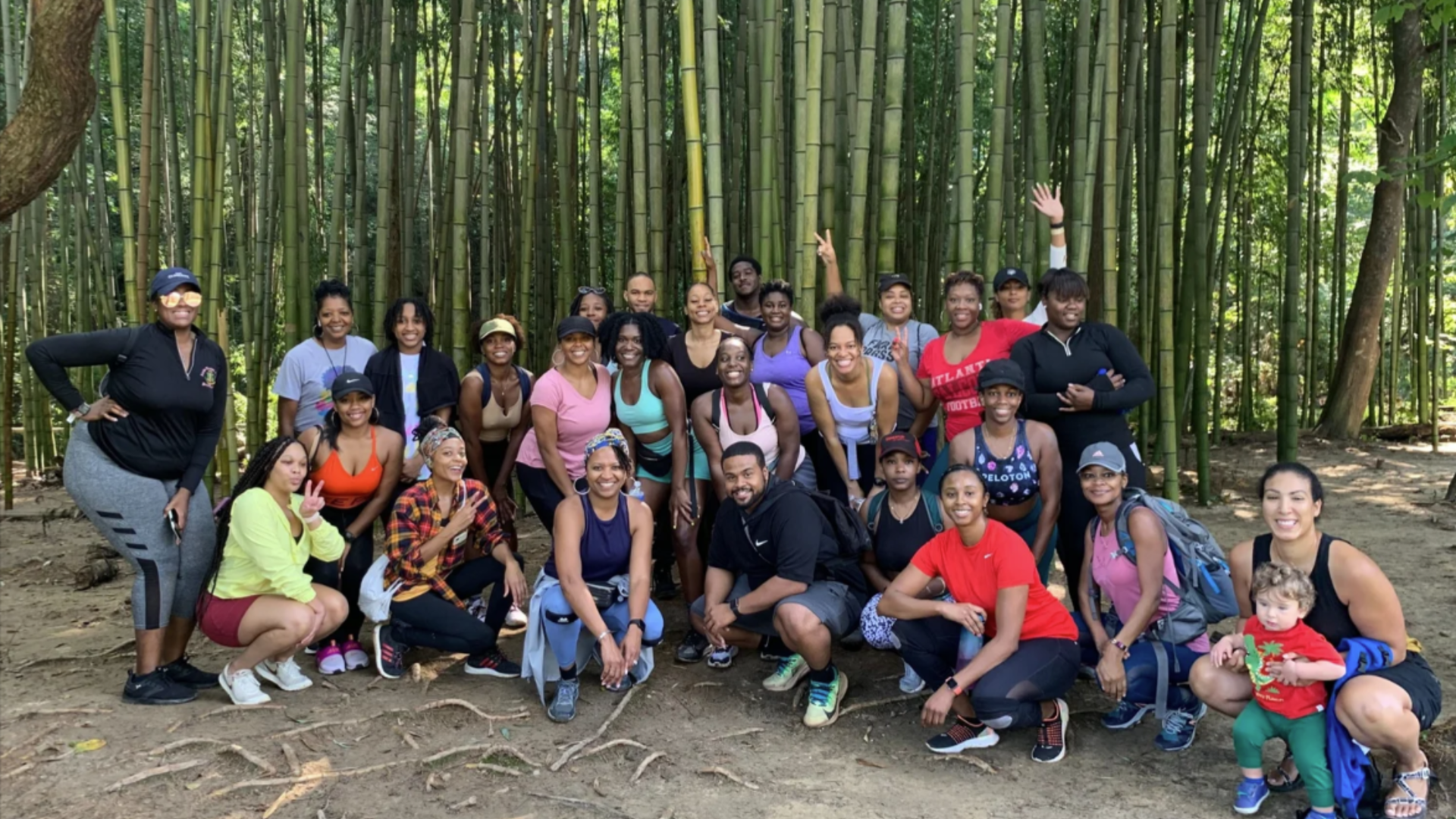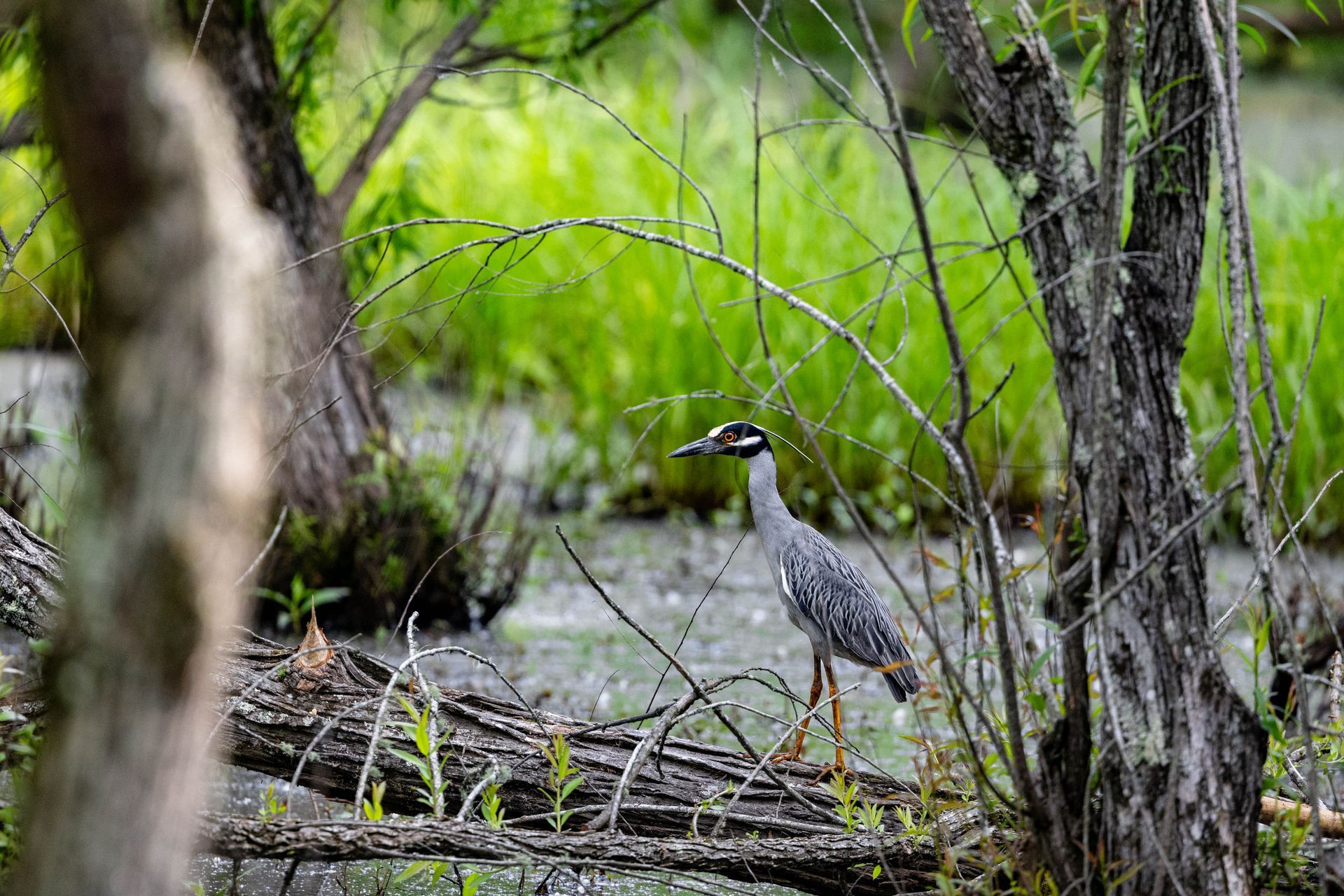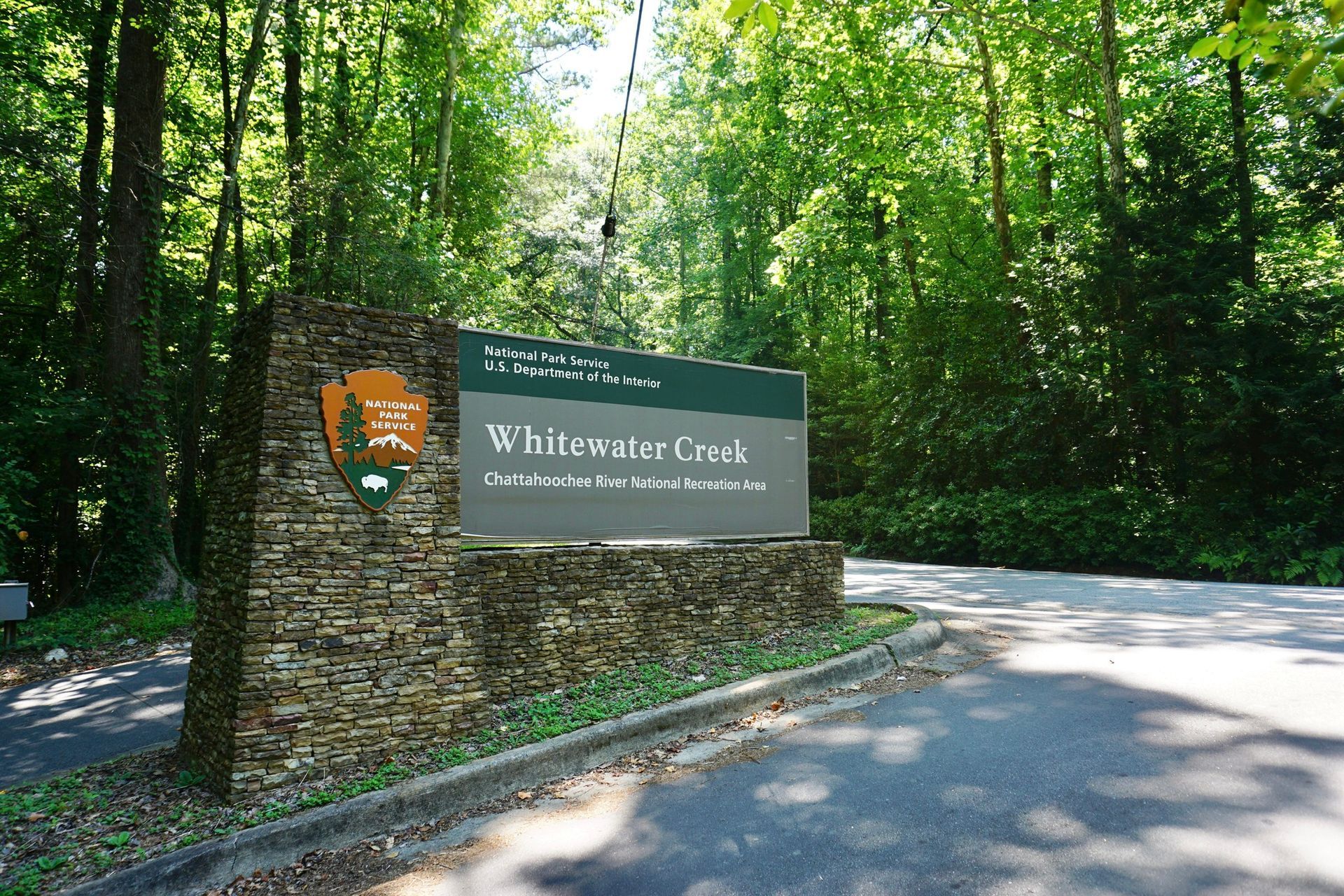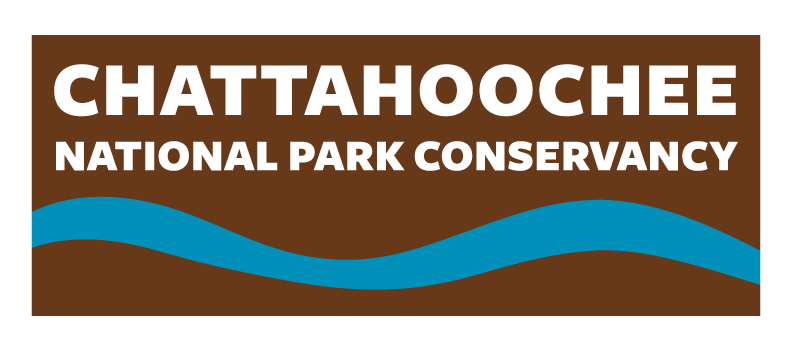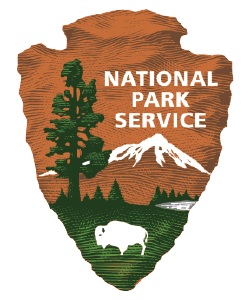Local Environmental Groups Join Forces to Defend Chattahoochee River National Recreation Area from Impacts of Federal Changes
ATLANTA, GA – In light of federal developments affecting the National Park Service (NPS), two Atlanta-based environmental organizations – Chattahoochee National Park Conservancy (CNPC) and Chattahoochee Riverkeeper (CRK) – have joined forces to raise awareness, encourage public action, and protect the future of Chattahoochee River National Recreation Area (CRNRA).
Stretching across 48 miles of the Chattahoochee River and more than 7,000 acres in metro Atlanta, CRNRA consistently ranks among the top 30 most-visited units in the national park system, welcoming over 3 million visitors annually. Yet like many national parks, it now faces serious uncertainty around funding, staffing, and resources, raising concerns and more questions among the community about what preserving and protecting it will look like moving forward.
As Congress debates the Fiscal Year 2026 federal budget, both organizations are urging the public to act now to prevent further cuts to the National Park Service, with funding shortfalls that threaten the prioritization of conservation and restoration efforts, resource stewardship, scientific research, and the ability to address growing maintenance needs.
“This park has been chronically underfunded, but is now facing an even more significant strain. If the budget falls shorter, it will only get worse," said Brittany Jones, Executive Director of CNPC. "We are here to support this park, but we need those who care about our park to speak up now, while there's still time to shape the outcome."
In May 2025, the federal administration released a FY26 budget recommendation that includes a $1.2 billion cut to the National Park Service – nearly 40% of the agency’s current funding. If enacted, it would be one of the largest reductions in NPS history, with far-reaching effects for parks nationwide, including CRNRA.
Several other recent federal shifts have added pressure to park operations. Executive Orders restricting federal hiring and purchasing have made it harder for the park to bring on needed staff, procure supplies, and cover basic operational expenses – challenges that are especially difficult as visitation continues to grow. Additionally, a House proposal to eliminate $267 million in Inflation Reduction Act funding for NPS has raised concern among public land advocates. With CRNRA already understaffed, further cuts would endanger critical functions of the park.
CNPC is the official nonprofit partner and friends group to CRNRA, raising funds to directly support and enhance the park through projects, community outreach, and volunteerism. CNPC is one of over 200 friends groups to national parks across America.
CRK is a watchdog and advocacy organization focused on protecting the entire Chattahoochee River watershed – 430 river miles from North Georgia to Florida – through water monitoring, education, legal action, and public engagement. 48 miles of the Chattahoochee River fall within CRNRA, and CRK works directly with the park on water quality monitoring and oversight.
To help people understand what’s at stake and how to help, CNPC has created a landing page explaining recent federal changes, the impact on CRNRA, and what local citizens can do to engage at chattahoocheeparks.org/updates. At the same time, CRK has launched a letter-writing tool that makes it simple to contact elected officials and urge full NPS funding at chattahoochee.org/nps.
This joint effort follows a recent advocacy win: after public outcry and pressure from Georgia Senators Jon Ossoff and Raphael Warnock, the Department of the Interior reversed its decision to terminate the lease for the USGS South Atlantic Water Science Center in Norcross, a critical facility that maintains stream gauges that track the Chattahoochee River’s bacteria levels and water height, discharge, and temperature. Several of these gauges are located within CRNRA and are vital for ensuring safe recreation for paddlers, anglers, and families on the river.
“We’re grateful for the reversal of the USGS lease termination. It’s proof that advocacy works,” said Jason Ulseth, CRK’s Riverkeeper and Executive Director. “Now, we need to keep that momentum going to protect the broader system of public lands and the park rangers who care for them.”
To get involved, the two organizations are encouraging the public to take action in two key ways:
- Speak Up: CRK’s letter-writing tool makes it easy to advocate for adequate NPS funding and stronger environmental protections. Supporters can write to members of Congress with a few easy clicks on their website at chattahoochee.org/nps.
- Support the Park: CNPC invites the community to help maintain trails, preserve ecosystems, and support public access to CRNRA through donations, memberships, and volunteering. Learn more at chattahoocheeparks.org/updates.
This collaboration reflects a shared commitment to supporting one of metro Atlanta’s most treasured public spaces, and a reminder that while federal decisions may be out of our hands, local action still holds power.
“CRNRA belongs to all of us,” said Jones. “By working together, we can make sure it stays safe, clean, and enjoyable for future generations.”
About Chattahoochee National Park Conservancy
Chattahoochee National Park Conservancy is the official nonprofit partner of Chattahoochee River National Recreation Area. CNPC enhances the park by building community, enriching lives, and catalyzing support to ensure a sustainable national park for future generations. Learn more at www.chattahoocheeparks.org.
About Chattahoochee Riverkeeper
Chattahoochee Riverkeeper’s mission is to educate, advocate, and secure the protection and stewardship of the Chattahoochee River, including its lakes, tributaries, and watershed, in order to restore and conserve their ecological health for the people and wildlife that depend on the river system and in recognition of the important ecosystem functions provided throughout the region and planet. For more information, visit www.chattahoochee.org.
Media Contacts:
Chattahoochee National Park Conservancy: Erin Tallent – erin.tallent@chattahoocheeparks.org
Chattahoochee Riverkeeper: Rosemary Pitrone – rpitrone@chattahoochee.org
Support Your Local National Park
If you enjoy CRNRA, consider supporting the Chattahoochee National Park Conservancy (CNPC). Your donation helps maintain and improve our beautiful trails and river, ensuring they remain a top destination and escape for metro Atlanta. Every contribution makes a difference in preserving this natural treasure for future generations.
Related Posts
